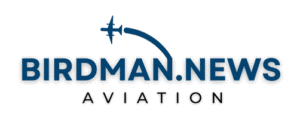JOHANNESBURG, SOUTH AFRICA – July 18, 2025 – African air travelers are facing an exorbitant and growing burden of taxes, charges, and fees, making air travel prohibitively expensive and severely hampering the growth of the continent’s aviation industry. A recent African Airlines Association (AFRAA) Taxes and Charges Study Review for 2024 reveals that passengers flying internationally from Africa pay an average of $68 in taxes and charges per departure, a figure twice the global average and significantly higher than in regions like Europe or the Middle East.
This alarming report, along with similar warnings from the International Air Transport Association (IATA), paints a grim picture for African aviation, where governments often perceive air travel as a luxury, leading to aggressive taxation that disproportionately impacts both airlines and passengers.
The Price of Flight: A Regional Breakdown
The AFRAA study, which surveyed 54 African countries, highlights significant regional disparities in these charges:
- West Africa remains the most expensive region, with an average of $110 in taxes and fees for international departures, up from $97 in 2022.
- Central Africa follows closely at $107, a $10 increase over two years.
- Eastern and Southern Africa charge $63 and $35 per passenger respectively, still higher than comparable non-African regions.
- Northern Africa offers the lowest rates, averaging $25 per passenger.
At the country level, the disparities are even more stark. Gabon leads with an astounding average of nearly $298 in taxes per international departure. Sierra Leone ($294) and Nigeria ($180) complete the top three, with countries like Djibouti, Niger, Benin, and Ghana also featuring among the most expensive. In contrast, countries like Libya ($1), Malawi ($5), and Lesotho ($6) have some of the lowest charges.
Why the High Costs? A Vicious Cycle
Industry experts point to a confluence of factors driving these elevated costs:
- “Aviation as a Cash Cow”: Many African governments view aviation as an easy source of revenue, diverting collected taxes into national treasuries with little to no guarantee of reinvestment into aviation infrastructure or services.
- Multiple Taxes & Fees: Passengers are often subjected to a myriad of charges, including airport improvement fees, security taxes, navigation fees, and even tourism-specific levies.
- High Operational Costs for Airlines: African airlines already face higher operating costs, including fuel prices that can be 17% above the global average, accounting for a disproportionate share of their expenses. Taxes, fees, and charges add another 12-15% to these costs compared to other regions.
- Lack of Transparency: There’s often a severe lack of transparency regarding how these collected levies are utilized, fueling frustration among airlines and industry bodies.
- Inconsistent Policies: Frequent changes in government and policy can lead to a reversal of agreements to lower charges, forcing industry advocacy groups like AFRAA and IATA to restart negotiations repeatedly.
Impact on Travelers and Economic Growth:
The consequences of these exorbitant taxes are far-reaching:
- Reduced Affordability: Sky-high ticket prices price out a significant portion of the population, limiting air travel to a perceived elite. This directly impacts regional connectivity, family visits, and business opportunities.
- Stifled Tourism & Trade: High travel costs discourage both domestic and international tourism, a vital economic driver for many African nations. It also makes intra-African trade more expensive and less competitive.
- Limited Network Growth: Airlines are hesitant to expand routes or increase frequencies in markets with such high tax burdens, restricting choices for consumers and hindering the development of a robust continental air transport network.
- Brain Drain: The high cost of travel is forcing, for example, Nigerian students and business people to travel to neighboring West African countries to secure more affordable tickets.
A Call for Reform:
AFRAA and IATA are consistently urging African governments to reconsider their taxation policies. They advocate for:
- Harmonization of Tax Structures: Creating more consistent and predictable tax environments across the continent.
- Reduction of Excessive Charges: Lowering the burden on passengers and airlines to stimulate demand.
- Alternative Funding Mechanisms: Exploring other ways to fund aviation infrastructure that do not solely rely on taxing air travel.
- Reinvestment in Aviation: Ensuring that revenues generated from the aviation sector are genuinely reinvested to improve airport facilities and air navigation services.
- Full Implementation of SAATM: Accelerating the Single African Air Transport Market (SAATM) initiative, which aims to liberalize air travel within Africa, fostering competition and driving down costs.
Without meaningful reforms, the dreams of a truly interconnected and economically vibrant African continent, propelled by a thriving aviation sector, risk being taxed out of reach.


